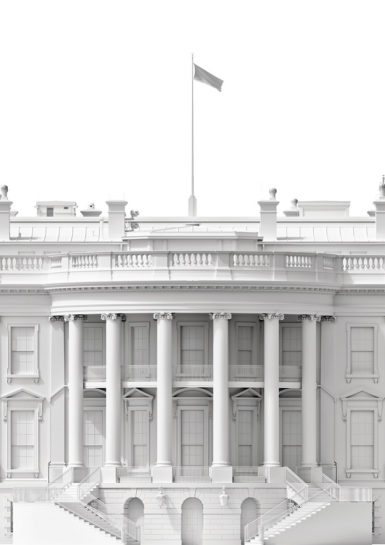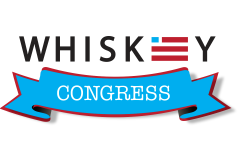
Trump’s Race War Is His Biggest Success in His First 100 Days
Donald Trump may not be the most elegant speaker, nor is he well versed in effective governing. One thing he is good at is passing rhetoric as fact. President Trump is using his sizable influence to promote tribalism and ethnonationalism. Either he’s unaware of what he’s doing or he knows exactly what he’s doing and I contend a person capable of either, is not fit to be President of the United States.
In August 2015, Marco Rubio, a rising star in the Republican Party and, by the reckoning of many at the time, the most likely candidate to claim its 2016 presidential nomination, gave an interview to Fox News. In it, Rubio offered a moving explanation for why he sympathized with the anger many African-Americans felt toward police. “This is a legitimate issue,” he said. “It is a fact that in the African-American community around this country, there has been, for a number of years now, a growing resentment towards the way law enforcement and the criminal-justice system interacts with the community.” Rubio shared the story of “one friend in particular who’s been stopped in the last 18 months eight to nine different times. Never got a ticket for being stopped — just stopped. If that happened to me, after eight or nine times, I’d be wondering what’s going on here. I’d be upset about it. So would anybody else.”
One should not mistake Rubio for a principled crusader for racial reconciliation. He is a partisan cipher, blessed with a talent for locating the midpoint of acceptable thought within the Republican Party and articulating it with apparent sincerity. And indeed, by the end of Barack Obama’s second term, one could plausibly identify the Republican Party as having begun the task of shedding what was known as its “southern strategy” of appealing to whites through their discomfort with blacks. In 2002, Republican Trent Lott had to resign his position as Senate Majority Leader after praising Strom Thurmond’s 1948 segregationist candidacy. In 2005, Republican National Committee chairman Ken Mehlman formally apologized for the southern strategy. In 2006, Congress almost unanimously extended the Voting Rights Act. In 2008, John McCain forbade his campaign staff to mention the Reverend Jeremiah Wright, a line of attack he considered racially inflammatory. By 2013, many Establishment Republicans (including Rubio, before he changed his mind) had come to believe they needed to embrace immigration reform to maintain their party’s long-term viability. Throughout Barack Obama’s second term, the cause of criminal-justice reform attracted increasing bipartisan support in Congress, as well as financial support from the Koch brothers, who were eager to complicate their public reputation.
The point is not to glorify the racial outlook of Republicans but to note that its direction appeared encouraging. The party may have largely ignored the persistence of systemic racism and clung to an unrealistically color-blind ideal, but it increasingly shunned not only overt racism but the dog-whistle appeals of the era of the welfare queen and Willie Horton. If, in the summer of 2015, Rubio had been signaling some measure of support and understanding for Black Lives Matter protests, then there was every reason to believe that this stance represented the political high ground.
But Rubio’s idea of the Republican future was not the one that prevailed. Instead, the future belonged to a very different vision, a glimpse of which could be seen in a furious dissent registered on Breitbart, a popular young news site that railed against the country’s growing pluralism. MARCO RUBIO LENDS SUPPORT TO ANTI-COP RHETORIC, BLACK LIVES MATTER SEEKS MEETING, blared the headline. “Rubio’s rhetoric echoes progressive rhetoric that black progress is impeded by institutional racism rather than left-wing policies,” reported the story, which took care to contrast Rubio with a surprisingly popular candidate who was attracting favorable coverage. (“Trump,” the article added approvingly, “has said that the Black Lives Matter protesters are ‘a disgrace’ and that those who pander to the anti-police movement are ‘unfit to run for office.’ ”) The article’s author, Julia Hahn, went on to take a position as an aide to Steve Bannon, who now serves as the main strategist to the president of the United States.
Measured in traditional terms, Trump’s accomplishments as president have been meager. He made a series of popular campaign promises, such as replacing Obamacare with something terrific, negotiating more clever trade deals, and building a wall on the Mexican border, that require technocratic aptitude to deliver and thus have mostly floundered. But traditional measures do not capture the most profound changes he has wrought.
Where he has defined Trumpism most clearly is in his sharply distinguished theory of race. Race is the unifying idea Trump has used to recast not only his party’s place within the country but his country’s place in the world. It is where his administration has been most passionate — and also most effective. Unlike economic or health-care policy, which requires dealing with Congress, Trump’s ethnonationalist program can be carried out by Trump and his tight band of loyalists on their own. And while Trump has foundered at the complex work of policymaking, he has succeeded at the simple work of tribalism, precisely because it is so simple. In both words and deeds, the White House has established the federal government as the defender of white power in America, projecting a blunt-force message of zero-sum dominance. Trump has done little to change the country’s policies, but ten weeks into his tenure, he has already made the United States a very different place and positioned himself to reap the terrible rewards that will follow.
Perhaps it had seemed so, in the days immediately following the election of the first black president. But Obama’s presidency filled the Republican base with racial terror. Beginning in 2008, social scientists identified a sharply rising correlation between racial resentment and Republican voting behavior. Obama “pitted the blacks against the whites,” Diane Fitzpatrick, the mother of Kellyanne Conway, told The Atlantic’s Molly Ball. “If something happened to a black person, he and his wife were right there. But if something happened to a white person, you never saw them, did you?”
Trump discovered the potential of nativism in national politics two years before his manipulation of the birther hoax, which famously launched him as a conservative political celebrity. In 2009, two Muslim-American businessmen proposed a Muslim-American cultural center in downtown New York designed, one founder explained, “to push back against the extremists.” The proposal nonetheless sparked rabid opposition on the far right, where the project was falsely described as located at ground zero and as a “victory mosque” designed to celebrate the 9/11 attacks. Andrew Breitbart’s website churned out screeds purporting to uncover the radical plot behind the project. Reclusive hedge-fund titan Robert Mercer ponied up a million dollars to finance advertisements denouncing the center. (Both Breitbart News and Mercer would later become crucial supporters of Trump’s campaign.) And Trump himself entered the imbroglio, publicly offering to buy the land from the developers and halting the center’s construction. “Good deal for everyone,” he tweeted. He accused the project leader of manipulating his faith to his advantage. “He is using religion as a way to get a better price, and I don’t like it,” Trump said.
Steve
Steve is an affordable multifamily housing professional that is also the co-founder of Whiskey Congress. Steve has written for national publications such as The National Marijuana News and other outlets as a guest blogger on topics covering sports, politics, and cannabis. Steve loves whiskey, cigars, and uses powerlifting as an outlet to deal with the fact that no one listens to his brilliant ideas.



